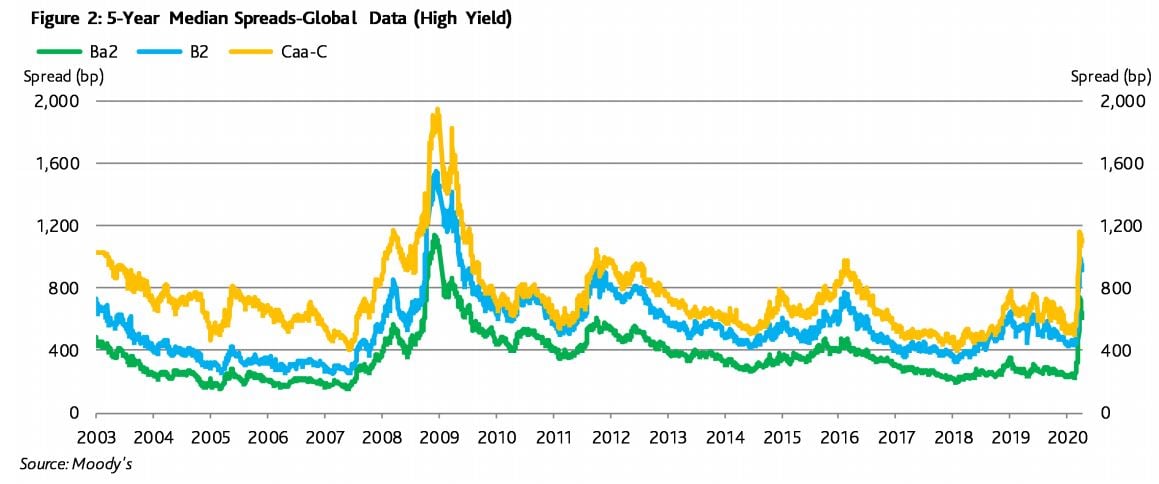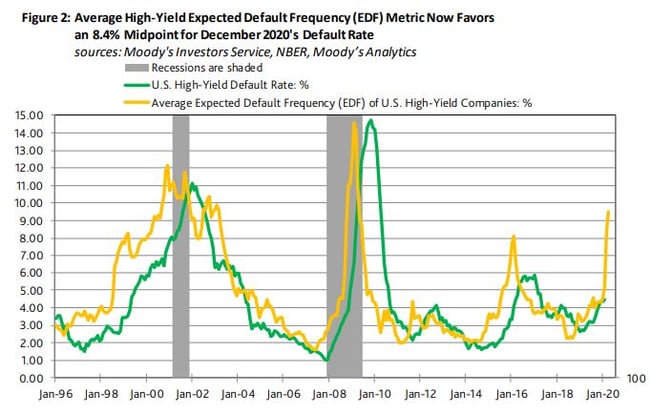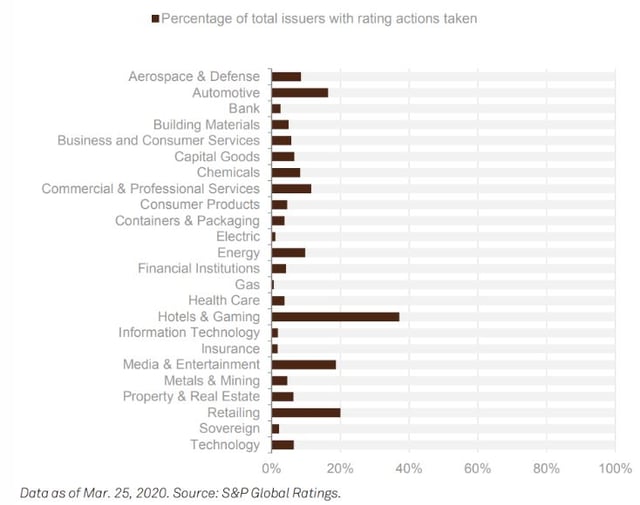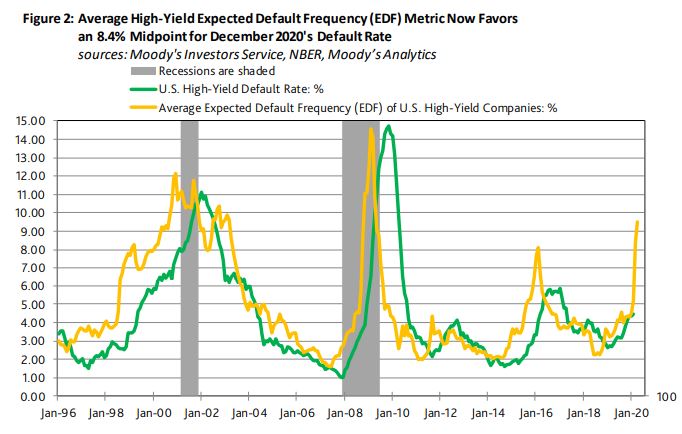Coronavirus Infects the Fixed Income Markets
Since the Coronavirus crisis began, we have seen the stock market fall sharply, but what about the fixed income market?
Normally, when a crisis of such scale comes, the prices of fixed income securities also go down. As a result, the debtors suffer loses.
One of the consequences of that is the increase in the spread over the government bonds, which are seen as a safe haven for investors in those times. The following Moody’s chart shows how this differential has increased over the past years:

In addition, expected revenue and earnings are revised downward. Therefore, its capacity to pay the debt also is deteriorated. This is accentuated in the High Yield market, where companies have more trouble to find debtors to finance its debt and liquidity problems arise.
According to Moody’s, the expected default rate for US companies is expected to reach 10% by the end of 2020.

These lower expectations are reflected in rating’s changes. Since February, we are seeing how the most important rating agencies are downgrading many companies.
In fact, S&P has downgraded more than 180 companies, with 80% of them being High Yield issuers.
In the following S&P chart, we see how the most affected sectors are hotel and leisure, retail and automobiles.

A few months ago, in the post entitled The Boom of BBB, we mentioned that most of the investment grade market was BBB, accounting for more than 55% of it.
Recall that the BBB is the border between what is called an Investment Grade and High Yield. Issuers that lose their investment grade rating are called Fallen Angels, and they generally don’t go back to the investment grade rating.
Many investment funds designated as investment grade funds invested in BBB companies, as they wanted to improve its fund expected yield. This overweight in BBB is resulting in losses as fallen angels begin to arise. Therefore, some investors suffered more losses than expected for an investment grade fund.
That is why it is important to know where you are invested, especially in these times of crisis.


